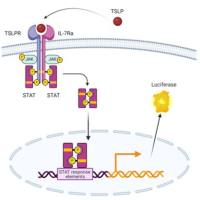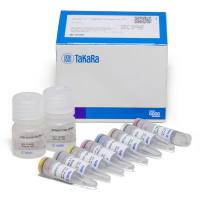Screening Libraries for Improved Solubility: Using E. coli Dihydrofolate Reductase as a Reporter
互联网
423
Low protein solubility is a problem in many areas of protein science. Although chemical methods have been developed to solubilize
proteins these are not always effective and add to the cost of producing the protein. One way of overcoming these difficulties
is to evolve the protein to be more soluble. A major hurdle in this process is the ability to select mutant proteins with
enhanced solubility from a large library of randomly mutated proteins. In this article, we describe such a method. The method
relies on the fact that increasing the expression of dihydrofolate reductase (DHFR) makes Escherichia coli
resistant to Trimethoprim (TMP). Proteins fused to DHFR will produce chimeras with altered levels of resistance to TMP. This
variation in TMP resistance can be used to identify mutant proteins with enhanced solubility.









